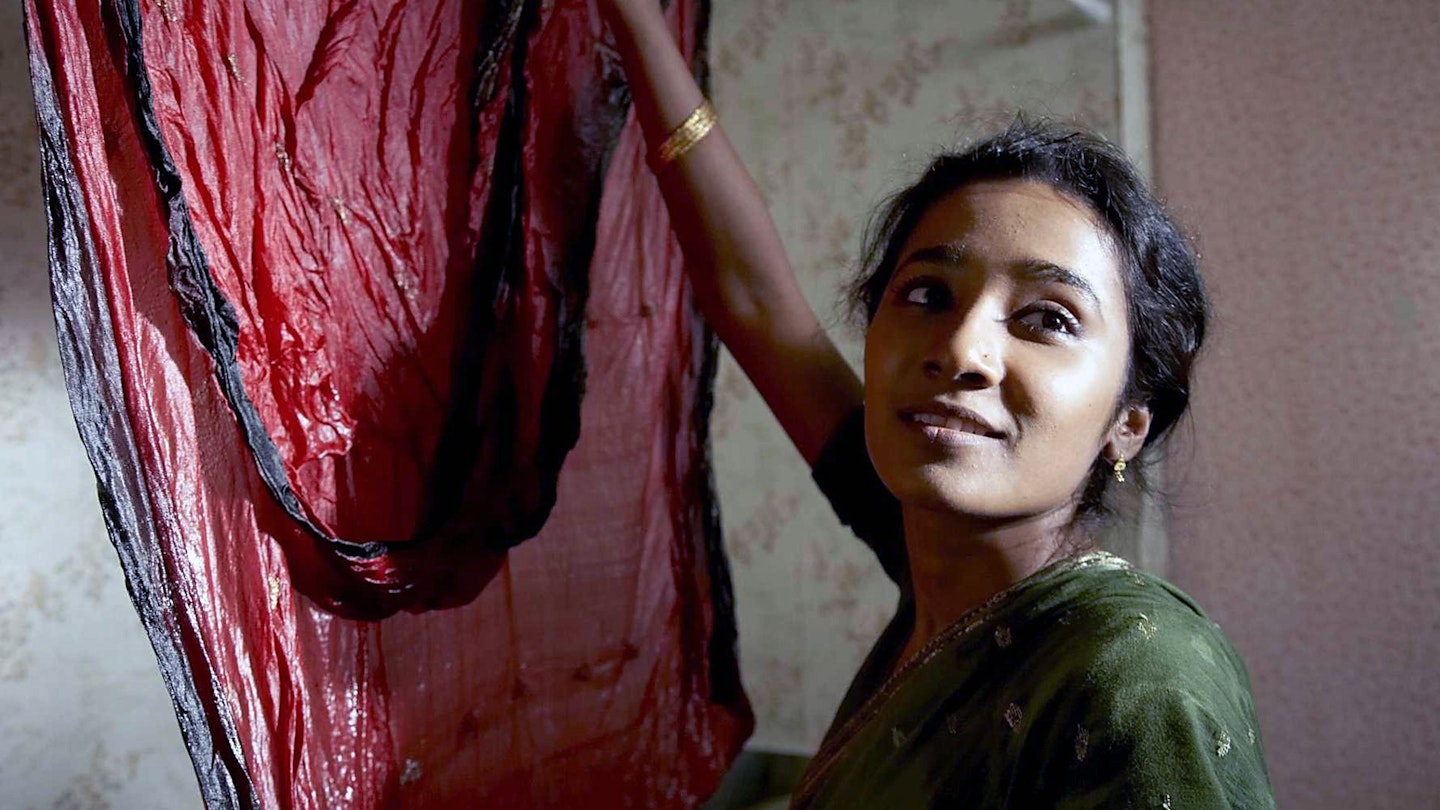While films such as East Is East and Mischief Night tackled the immigrant experience with a wry, comic touch, Brick Lane takes a more sober approach. Based on the novel by Monica Ali, it focuses on the claustrophobic life of Nazneen (Tannishtha Chatterjee), a wife and mother whose grey, routine East End existence is in sharp contrast to her colourful, free childhood in Bangladesh.
After years of being stuck indoors while her husband Chanu (Kaushik) is at work and her teenage daughters at school, Nazneen nervously accepts an offer of work, sewing clothes at home. While the job itself is a catalyst for increased independence, it comes with an added bonus: handsome young Karim (Simpson), who brings and collects the goods. Karim is sensitive to Nazneen’s culture: he politely asks if her husband is home when he first calls round and is wary of intruding. But he’s the type of Westernised Muslim Chanu regards with suspicion, and his flirtatious manner spells danger: is he a serial womaniser? Karim’s ambiguities help steer Brick Lane away from predictable romantic territory, without denying the audience the vicarious pleasure of forbidden love.
The 9/11 terrorist attacks send the drama into more political territory. As Muslims are targeted by vengeful locals, Karim becomes politicised, Chanu alienated, and Nazneen caught in the middle. Still, there’s enjoyable humour at the expense of rotund Chanu, who’s constantly trying to convince his family - and himself – that he’s a successful businessman in the face of frequent, sometimes comical failures.
Crucially, Chanu and Nazneen’s routine relationship is very well depicted. The film never demonises Chanu, ultimately treating him with sympathy and affection. Such well-drawn characters help make this an involving portrait of a community whose patriarchal traditions are under threat.

